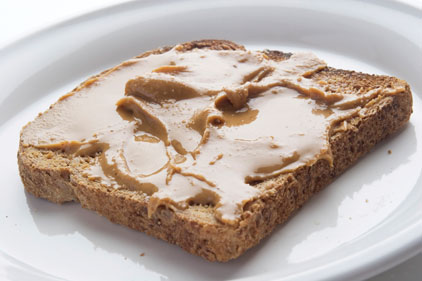A new study published in Breast Cancer Research and Treatment showed that girls who ate peanut butter or nuts regularly from the ages of 9-15 were less likely to develop benign or non-cancerous breast disease by the time they were 30 years old.
Benign breast disease increases the risk of breast cancer, but it is non-cancerous. It can occur when there are changes to the breast or an injury or infection which leads to lumps in the breast tissue.
"These findings suggest the peanut butter could help reduce the risk of breast cancer in women," senior author Graham Colditz, associate director for cancer prevention and control at Siteman Cancer Center at Barnes-Jewish Hospital Washington University School of Medicine said.
Researchers at the Dana-Farber Cancer Institute and Harvard Medical School studied 9,039 American girls who were involved in the "Growing Up Today" study that kicked off in 1996. The girls filled out food frequency questionnaires once a year from their recruitment year until 2001 and then biennially until 2010. The study followed up with the girls when they were 18-30 years old to see if they had been diagnosed with benign breast disease that had been confirmed through a biopsy.
The researchers found that girls who ate peanut butter or nuts twice a week were 39% less likely to have the non-cancerous breast disease than those who never ate peanut butter or nuts. The outcome remained the same even if the girl had a family history of breast cancer.
There have been other studies linking lower risk of benign breast cancer with peanut butter, nut and vegetable consumption, but this is the first study that did not ask subjects to recall what they had eaten years before, the authors noted.
Other sources of vegetables fats and proteins, such as soybeans, beans and lentils, could also have the same effect, but researchers noted the data on those particular foods in the study were not as abundant as data on peanut butter.
